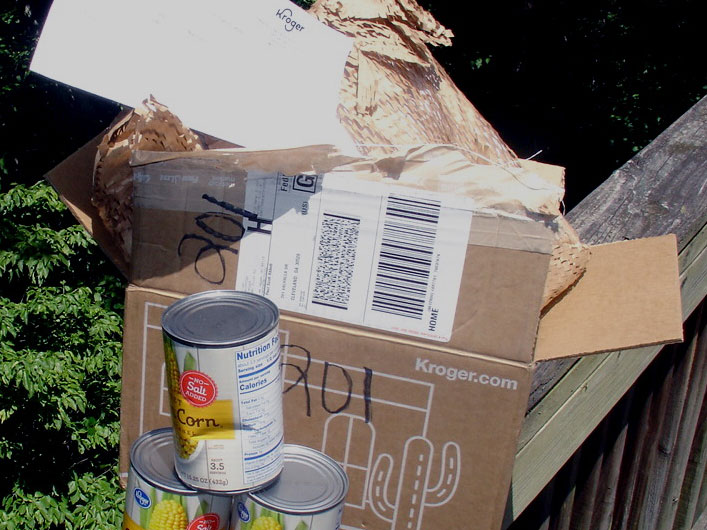For The Kroger Co., the largest U.S. grocery retailer, catering to the booming ship-to-home business in the COVID-19-impacted marketplace is obviously not quite as simple as a “can of corn” – the slang baseball term for an easy-to-catch fly ball.
At a time when retailers are going to unusual lengths to be consumers’ top choice for home deliveries, Kroger’s recent shipment of three 63-cent cans of corn involved a transcontinental journey of more than 2,000 miles, with one of the cans arriving in dented condition.

We can’t be sure about all this, though, because repeated media queries to more than a dozen Kroger executives, including Kristal Howard, director of corporate communications and media relations, and Robert Clark, senior vice president of supply chain, manufacturing and sourcing, have gone ignored despite read receipts for emails.
What is clear is that Cincinnati-based Kroger – which ranks behind only Walmart among U.S. general retailers and is the fifth-largest retailer in the world – is actively expanding its ship-to-home offerings.
According to an Aug. 11 announcement, the Kroger Ship program, launched in August 2018, is initially making more than 50,000 additional items from third-party sellers available to homes under a partnership with Mirakl, a Paris-based e-commerce software firm.
“To better serve our customers, we’re continuing to invest in technology that enables us to expand our digital services to deliver anything, anytime, anywhere,” Jody Kalmbach, Kroger’s group vice president of product experience, said in that announcement.
In its fiscal quarter ended May 23, Kroger reported a 92 percent increase in digital sales compared with a year earlier.
The carton with the corn cans was one of three boxes to arrive via FedEx at the rural North Georgia home to fulfill an order totaling $37.14 including tax, with no charge for shipping under a special Kroger promotion. Two other boxes, apparently transported by truck along Interstate 85, made a 300-mile trip from a Kroger warehouse in North Carolina. One of those two other boxes contained just a single item – a 99-cent package of coffee filters weighing a fraction of an ounce.
In “How to Speak Baseball,” by James Charlton and Sally Cook, a can of corn is defined as: “An easy fly ball to catch. Easier to catch than a sack of potatoes.”
Even with its expanded ship-to-home offerings, it doesn’t look like Kroger offers such delivery for sacks of potatoes, at least not yet, regardless of point of origin and perhaps distant destination.




